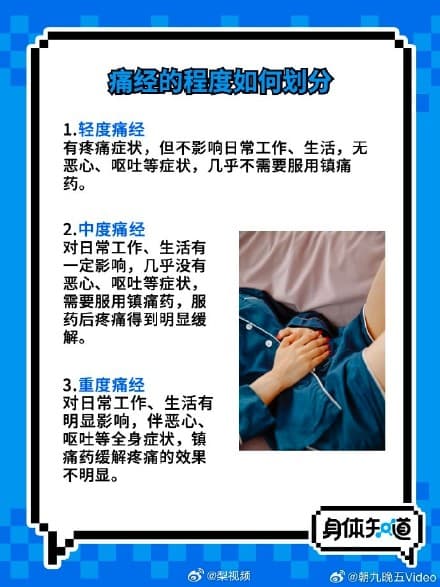Childbirth and Dysmenorrhea: Netizens Debate Impact on Menstrual Cramps
"The Effect of Childbirth on Dysmenorrhea: Netizens Weigh In"

2 January 2024
Recently, a Weibo post discussing the impact of childbirth on dysmenorrhea, or painful menstrual cramps, has sparked a lively debate among netizens. The post was based on a 2021 white paper which revealed that 50% of women in China suffer from dysmenorrhea, with the main cause being primary dysmenorrhea. The post also mentioned that some women believe that giving birth can alleviate the pain of dysmenorrhea. However, netizens had differing opinions on this subject.
According to the Weibo post, primary dysmenorrhea, the most common type of dysmenorrhea, affects around 33% of women and is characterized by moderate pain. Secondary dysmenorrhea, which occurs in approximately 10% of women, is often caused by underlying conditions such as uterine fibroids or endometriosis. The post stated that childbirth may have different effects on dysmenorrhea depending on its cause.
One user shared her experience, saying, "I had primary dysmenorrhea and got pregnant. After giving birth, my dysmenorrhea did improve slightly, but it came back when my period returned, and this time it was even worse." Another user agreed that the effects of childbirth on dysmenorrhea varied among individuals, saying, "I think it depends on the person. Some women's dysmenorrhea does get better after giving birth, while others still suffer from the pain."
However, not all netizens agreed with the idea that childbirth could alleviate dysmenorrhea. One user commented, "Why does this always come back to having kids? I don't have dysmenorrhea and I'm not planning on having kids. Shouldn't we focus on finding a treatment instead?" Another user echoed this sentiment, writing, "I don't want to have kids and I don't have dysmenorrhea. If I ever do, I'll just deal with it."
The post also brought up the issue of endometriosis, another common cause of dysmenorrhea. Endometriosis is a condition where the tissue that normally lines the uterus grows outside the uterus. This can cause severe pain and may not be alleviated by childbirth.
Amidst this discussion, some users shared their personal experiences with endometriosis. One user wrote, "I had a hysterectomy [removal of the uterus] because of endometriosis. It was a last resort, but I was in so much pain that it seemed like my only option." Another user commented, "Endometriosis is a serious condition that affects so many women, and it shouldn't be ignored just because some people believe that having kids might help."
In conclusion, the Weibo post has generated a wide range of opinions regarding the impact of childbirth on dysmenorrhea. While some believe that giving birth can alleviate the pain, others argue that it may not be the solution for everyone, especially those with secondary dysmenorrhea or endometriosis. As the debate continues, it is essential for women suffering from dysmenorrhea to seek proper medical advice and treatment rather than relying on myths or hearsay.
Share this article
Related Articles

China’s “Ugly Hour” Push: Viral Hashtag Sparks Nationwide Call for 1‑3 a.m. Bedtimes and New Sleep‑Health Policies
By Trending on Weibo
Health
15 Sept 2025

Actress Tang Yan Named First Infant Respiratory Health Ambassador in China’s Nationwide “Good Breathing Protection” Campaign
By Trending on Weibo
Health
13 Sept 2025

Veteran Chinese Actor You Benchang’s Nursing‑Home Move Signals a Shift in China’s Attitude Toward Elder Care.
By Trending on Weibo
Health
9 Sept 2025
Viral Chinese Hashtag Raises Awareness of “Chemical Damage” Caused by Severe Diarrhea.
By Trending on Weibo
Health
4 Sept 2025
Viral “No‑Exercise” Weight‑Loss Hacks Sweep China: Seven Simple Habits Spark Debate
By Trending on Weibo
Health
2 Sept 2025